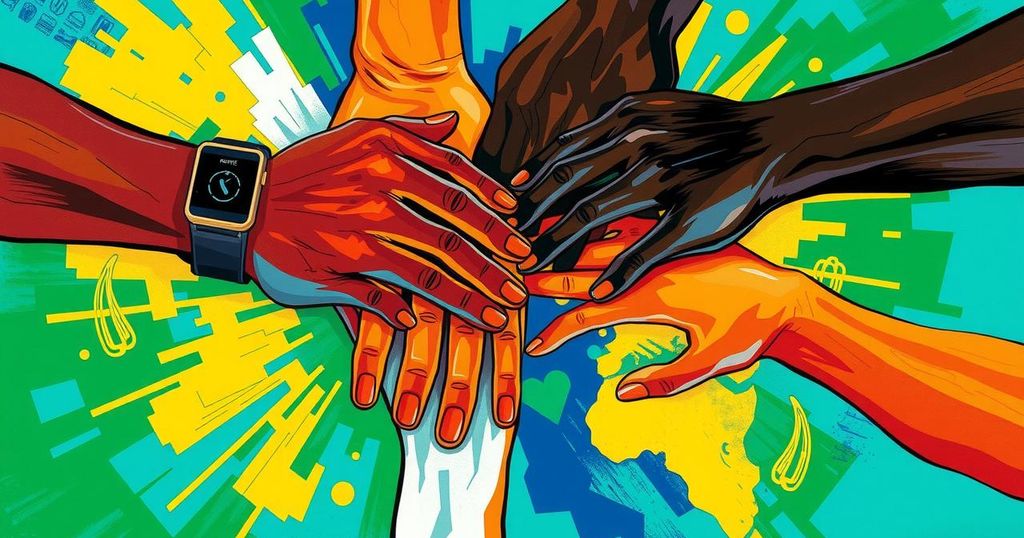Electoral Setbacks: Swapo and the Emergence of Opposition in Africa

Namibia’s Swapo party retained power with presidential candidate Netumbo Nandi-Ndaitwah winning 57% of the vote. However, their parliamentary performance plummeted, reflecting a broader trend in sub-Saharan Africa where governing parties are losing support amid economic concerns and opposition gains. This trend may intensify into 2025, suggesting increased democratic resilience in the region.
Namibia’s Swapo party has maintained its governance after over three decades, yet its dominance is evidently waning. Official results indicate that the Swapo presidential candidate, Netumbo Nandi-Ndaitwah, secured 57% of the votes, making her the first female leader in the country. Nonetheless, opposition parties have disputed the results, citing logistical issues and electoral irregularities throughout the voting process.
Curiously, Swapo’s presidential vote share rose despite a dismal parliamentary performance, where it lost 12 seats, barely retaining a majority of 63. Swapo is not isolated in its electoral losses. This year has proven challenging for numerous sub-Saharan African governments as they face increasing voter dissent.
In 2024, many elections resulted in governing parties losing significant support or power, attributed to economic difficulties, rising public disenchantment with corruption, and the emergence of stronger opposition coalitions. This trend appears poised to continue into the next electoral cycle in 2025.
Countries like Botswana and Mauritius have witnessed exceptionally notable defeats, with the Botswana Democratic Party (BDP) securing only four seats compared to 38 previously. Similarly, in Mauritius, the ruling Alliance Lepep coalition suffered a dramatic decline, earning only 27% of the votes and losing its parliamentary hold completely by winning just two seats.
The situation has also unfolded in Senegal, where the government faced massive electoral resistance despite detaining key opposition figures prior to the elections. Following their release amidst public pressure, the opposition secured a decisive victory, with the ruling candidate garnering only 36% of the vote.
Governments retaining power, such as South Africa’s African National Congress (ANC), experienced significant setbacks, falling below the 50% vote threshold for the first time since the end of apartheid. This led to the ANC entering a coalition, relinquishing control over key government positions.
An overarching theme this year is the profound public frustration with government performance on economic management. High food and fuel prices significantly impact citizens’ livelihoods, escalating demands for accountability and change. This general unrest also reflects broader global trends, as evidenced by political shifts in the United Kingdom and the United States.
Opposition parties across Africa have increasingly adopted strategic measures for safeguarding elections, ensuring transparency at every stage of the process, forging coalitions, and presenting voters with unified alternatives. Upcoming elections, especially in Ghana and Malawi, could continue this pattern of opposition successes, indicating potential for historical shifts in democratic governance.
The widespread electoral discontent presents a striking contrast against the backdrop of global authoritarian trends, showcasing African resilience in the democratic process. Civil society, opposition groups, and an engaged populace are vital in demanding accountability from their governments, suggesting a noteworthy and growing commitment to democratic principles within the region.
In summary, Namibia’s recent elections highlight a broader trend across sub-Saharan Africa where governing parties are facing significant electoral challenges. Factors such as economic distress, public dissatisfaction with corruption, and the rise of organized opposition have contributed to this shift in political dynamics. The ongoing developments signal a potential transformation in governance across the region, advocating for greater accountability and democratic engagement.
Original Source: www.bbc.com






